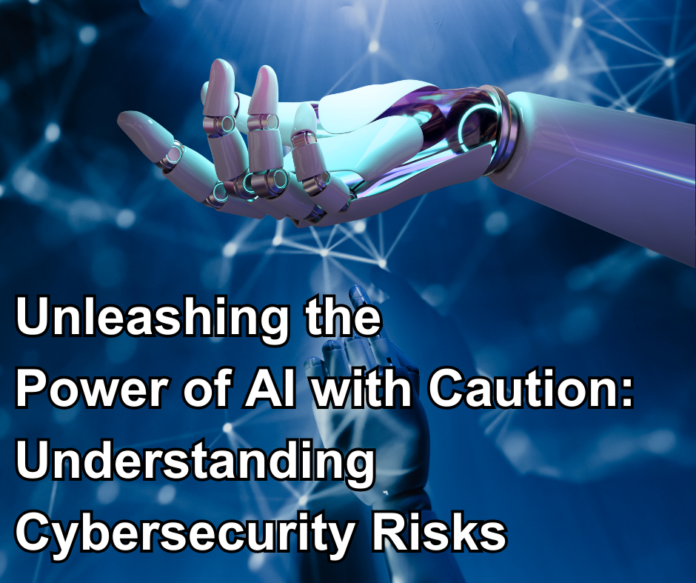

Artificial Intelligence (AI) has emerged as a game-changer, revolutionizing industries and transforming the way we live and work. However, as AI continues to advance, it brings with it a new set of cybersecurity risks and challenges. In this blog, we will delve into the potential risks associated with AI and the importance of implementing robust cybersecurity measures to safeguard against these threats.
AI’s Vulnerabilities:
AI systems are not immune to vulnerabilities and can be exploited by cybercriminals. One major concern is adversarial attacks, where malicious actors manipulate AI models by injecting subtle modifications into input data, causing the system to make incorrect or biased decisions. These attacks can have significant consequences in various domains, such as autonomous vehicles, medical diagnosis, or financial systems.
Data Poisoning and Manipulation:
AI models heavily rely on vast amounts of data for training and decision-making. However, if the training data is compromised or poisoned, it can lead to biased outcomes or erroneous predictions. Cyber attackers can intentionally manipulate training data to trick AI systems into making incorrect decisions, potentially resulting in serious consequences. Protecting the integrity and quality of training data is crucial to prevent these types of attacks.
Model Theft and Replication:
AI models are valuable assets, representing significant investments in time, resources, and expertise. Sophisticated attackers may attempt to steal or replicate AI models to gain a competitive advantage or exploit their capabilities for malicious purposes. Safeguarding the intellectual property and proprietary algorithms behind AI models is vital to prevent unauthorized access and misuse.
Privacy and Ethical Concerns:
AI systems often process vast amounts of personal and sensitive data, raising concerns about privacy and ethical implications. Inadequate security measures or vulnerabilities in AI systems can result in data breaches, leading to the exposure of personal information and potential privacy violations. Ensuring robust data protection mechanisms, such as encryption and access controls, is essential to maintain user trust and comply with privacy regulations.
Lack of Explainability and Accountability:
AI models, particularly those based on deep learning techniques, can be opaque and difficult to interpret. This lack of explainability poses challenges when it comes to understanding the reasoning behind AI-driven decisions. In critical sectors like healthcare or finance, the inability to explain AI’s decision-making process may lead to distrust and hinder accountability. Balancing transparency and performance in AI models is crucial to ensure responsible and accountable AI applications.
Mitigating AI Cybersecurity Risks:
To mitigate the cybersecurity risks associated with AI, organizations must adopt proactive measures:
Robust Security Infrastructure: Implement comprehensive security measures to protect AI systems, including secure development practices, regular vulnerability assessments, and robust access controls.
Adversarial Training: Train AI models to recognize and withstand adversarial attacks by exposing them to carefully crafted malicious inputs during the training phase.
Data Governance: Establish strict data governance policies to ensure the integrity and quality of training data, including data validation, data lineage tracking, and monitoring for data poisoning attempts.
Continuous Monitoring and Response: Implement real-time monitoring and detection systems to identify anomalies, potential attacks, or unauthorized access to AI systems. Develop incident response plans to mitigate and contain any breaches or attacks swiftly.
Collaboration and Industry Standards: Foster collaboration between AI researchers, industry experts, and policymakers to establish best practices, guidelines, and standards for AI cybersecurity.
As AI continues to revolutionize industries and drive innovation, it is crucial to acknowledge and address the associated cybersecurity risks. By understanding and proactively mitigating these risks, we can unlock the full potential of AI while ensuring the safety, privacy, and integrity of our systems and data. Implementing robust cybersecurity measures and promoting responsible AI practices will pave the way for a secure and trustworthy AI-driven future.




















